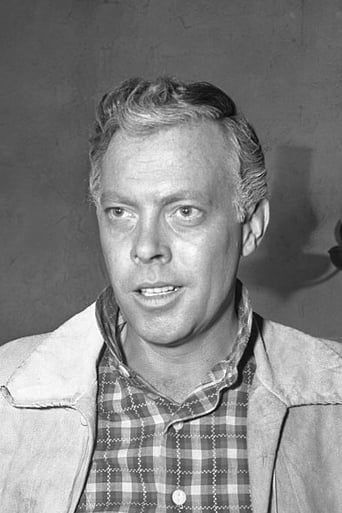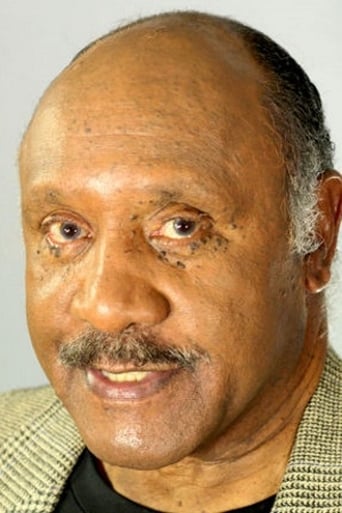AniInterview
Sorry, this movie sucks
Ameriatch
One of the best films i have seen
Quiet Muffin
This movie tries so hard to be funny, yet it falls flat every time. Just another example of recycled ideas repackaged with women in an attempt to appeal to a certain audience.
Nicole
I enjoyed watching this film and would recommend other to give it a try , (as I am) but this movie, although enjoyable to watch due to the better than average acting fails to add anything new to its storyline that is all too familiar to these types of movies.
Jakester
Midway through this film we are in the operating room of a veterinarian (Charles Grodin) watching his surgery on a sick horse. We are asking ourselves, "WTF?"We are specifically asking ourselves "WTF does horse surgery have to do with the premise of this film, which, we thought, was to show the wackiness of an American family?" The answer to that question is "Nothing" and therein resides a core issue of this film: it doesn't seem very interested in the wackiness of an American family. The family has been pretty much abandoned by this point. The family was probably a key aspect of the elevator pitch for the film, but once Albert Brooks got his $3 million, the family was forgotten in favor of encompassing "larger"themes.A little bit later in this film we are in the living room of Albert Brooks. Several psychologists have gathered around a table and are analyzing a piece of film shot by Brooks showing the hands of family member Charles Grodin picking up a coffee cup. The psychologists make a useful and funny point or two about the hands and coffee cup, but after five minutes we are are thinking, "How long will this sequence last?" The answer: something north of 10 minutes. One-tenth of this movie consists of psychologists arguing. Another 10 to 15 minutes of the film is occupied by the mom (Frances Lee McCain, whose performance here is very good) falling in love with the director (Brooks) and then falling out of love. We get zero motivation for mom doing this; her feelings just suddenly appear, flower, and disappear without a trace. (She's the best thing in the film, and boom, she's gone.)This film, at its core (and here's the primary "larger" theme) is a satire on the evil ways of Hollywood —- its self-absorption, its idiocy, its unchained narcissism as embodied in Brooks. There are lots of inside Hollywood jokes. Insider b.s. dominates the proceedings. This tricky territory has been handled well once or twice in film history -— "Sunset Boulevard" comes to mind —- but really, the ticket-buying audience doesn't connect to, and isn't interested in, the inside of Hollywood (in fact, basically hates the inside of Hollywood) unless an Everyman of the caliber of William Holden is present as their representative. (Memo to Albert Brooks: you're not William Holden, and, by the way, your co-writer, the oh-so-arch Harry Shearer, is no I.A.L. Diamond, who was an actual human being.)Brooks has chances, in a couple of places, to make this thing work. Early in the film he lines up his team —- the production staff for the film he wants to make. There are Teamsters (an endless number of them, another insider joke), cameramen, a publicity man, etc. Here's an opportunity for big-league satire rather than small potatoes. Brooks could make that publicity man into The Publicity Man, all full of Hollywood self-importance and corruption and absurdity. He could smash through the fences and blow Hollywood frickin' UP, and if he could do that early in the film, he could set a pace that could make the whole thing sing. Doesn't happen. The sequence ends up a big nothing, a mouseburger, because Brooks and his writers lack the guts to let 'er rip. We end up agreeing with his self-assessment: "I'm a stupid, stupid jerk." The camera guy who looks at his watch toward the end is on the mark.This is a worthless, audience-insulting, thick-headed movie. That said, I'm sure one or two people in Hollywood watched it, said, "The man's a genius!" and invested millions in his (and Harry Shearer's) filmmaking future. So how'd that work out, fellas?
Mr-Fusion
Albert Brooks' REAL LIFE maintains an eerie prescience, but the man simply took a PBS experiment from the '70s and smashed it into Hollywood artifice to profound comedic effect. His character's film experiment (you guessed it, to document real life as movie) seems novel, but the family's miserable and it only goes downhill from there. It's a well-chosen cast, full of funny personalities - Grodin is a highlight here and can't stop making contact with the camera - and then there's Brooks' used car salesman filmmaker, virtually devolving matters into absurdity by his own hand. And he's on fire here, playing a fictionalized dickish version of himself (and pulling no punches doing it).The man's a genius, if for no other reason than for introducing one of the funniest props in movie history: the Ettinauer 226XL! Very good stuff.8/10
MartinHafer
Albert Brooks tries so hard in this fake documentary about American family life that you find yourself willing to wade through the movie's many slow moments and gags that just don't succeed. Plus, the movie can be quite funny from time to time. But, in general, I look at this like a fake documentary that was a noble experiment that ultimately failed--but is still worth seeing. After all, if it hadn't been for films like this, maybe they never would have made films like BEST IN SHOW as well as AND GOD SPOKE.Although the purpose of this documentary is to show American family life in an unobtrusive manner, ultimately, the family becomes like a lot of modern "reality TV" families and the action becomes more and more suggested by the producer, Brooks. And, ultimately, the filming takes on a dramatic impact on the family.Funny, insightful but far from perfect.
lensecap
'Real life' is the perfect send-up of the worst scenario possible for a film maker shooting a documentary, i.e., what happens when your subject matter loses interest in the project before completion? Albert Brooks, as the seemingly besieged director of this 'loaf of reality' year long vigil with a typical American family, walks a fine line between egomania and neuroticism and scores with broad belly laughs both ways. Charles Grodin as the head of the suburban clan from which this film within a film emanates exudes his special brand of bland exuberance at the beginning of this captive camera stakeout inside his home(and everywhere else he may go) provided his life is depicted as letter perfect from day to day. When such is not the case and the obtrusive lenses are interfering with his job as a veterinarian, (in a sequence that has to be seen rather than described) then Grodin regards the camera presence as nothing more than an albatross and mentally switches himself off. Albert Brooks, meanwhile, never says quit. Every so-called hair in the eye of the lense is still a perfect scene regardless of the participation or lack of it, thereof, from his celluloid family. For Brooks regards this film as 'paramount'(oops) over the desires of his cast of characters. Brooks facile mind works methodically from beginning to end. From his perspective, nothing can go wrong, everything is in its place with a place for everything. So when his documentary and the human equation around it blow up in his face , his conferences with colleagues are hilarious as he tries various remedies to salvage not only his project but his self-image. Brooks is a comic delight as a man who cannot take criticism regarding his methods and his interaction with project staff are decidedly one-sided, but in the capable hands of this farceur, his myopic viewpoint is always good for guffaws galore. Real life should be this funny.







